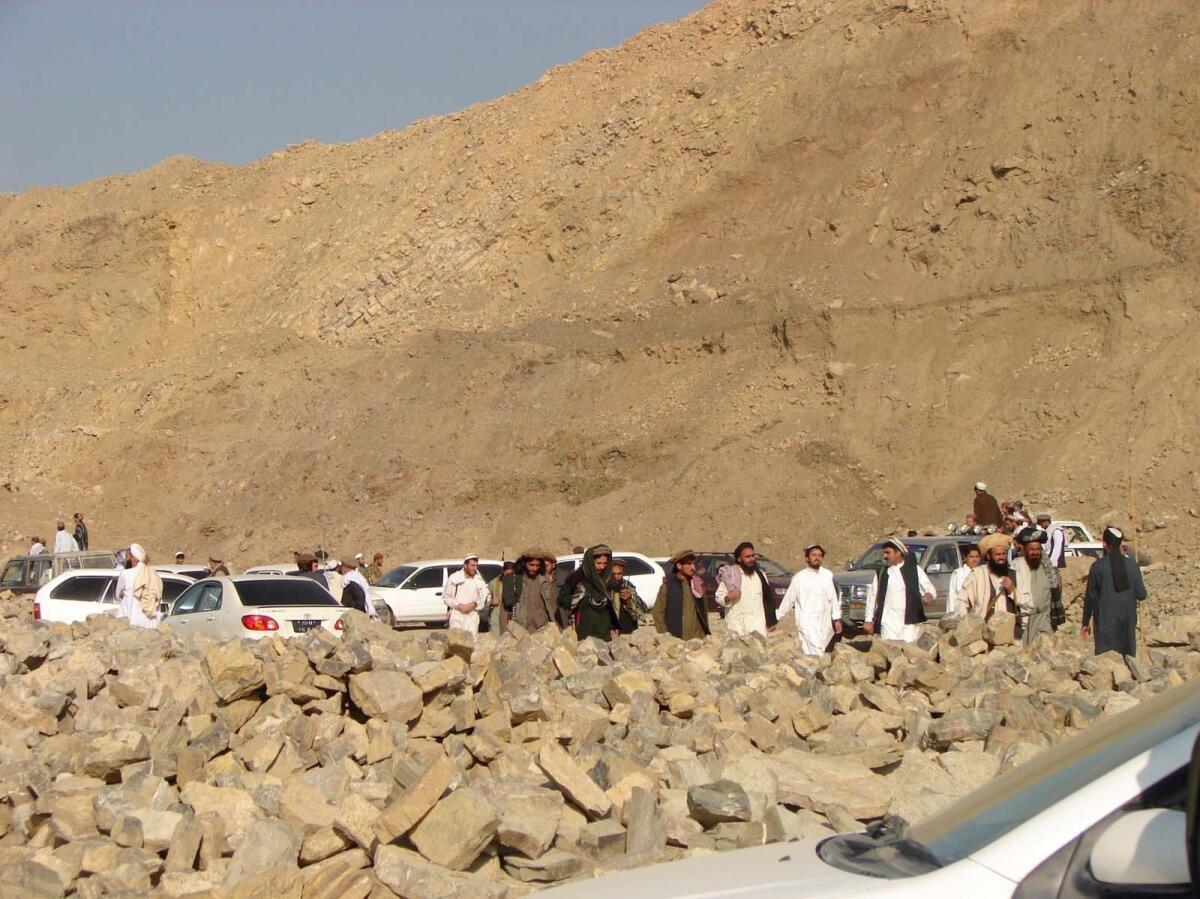Abandoning peace bid, Pakistan opens offensive against insurgents

- Share via
Reporting from Peshawar, Pakistan — Pakistani armed forces began “a comprehensive operation” against militants in the North Waziristan tribal region on Sunday as fighter jets and ground forces pummeled insurgent hideouts, killing 80 people, officials said.
The Pakistani military said Prime Minister Nawaz Sharif’s government ordered the long-awaited offensive, which came one week after a major terrorist attack on the country’s busiest airport left 36 people dead including 10 attackers.
The announcement officially brought an end to a failed, months-long bid by Sharif to open peace talks with the Pakistani Taliban, the main insurgent organization based in the tribal areas that is seeking to overthrow the Islamabad government. But the peace effort faltered amid worsening violence as Sharif faced growing pressure, including from the United States, to launch a military campaign against the insurgent group and its allies.
U.S. officials had been quietly urging Pakistan to strike the insurgents this summer, before harsher weather makes military operations more difficult. Some Pentagon officials also worry that the departure of most U.S. troops from neighboring Afghanistan at the end of the year could give insurgents on both sides of the border — including the Afghan Taliban, ideological cousins to the Taliban in Pakistan — more freedom to operate
Defense Minister Khawaja Asif said Sharif’s government opted for military action because the peace bid had failed. “The decision was taken thoughtfully, keeping in view all options,” Asif said in a statement.
Officials did not announce a timetable for the operation, which was named Zarb-e-Azb, for a sword belonging to the Muslim prophet Muhammad. Asif said that it would end “as soon as possible” and added that the military was ready to assist civilians displaced by the attacks, which some have said could number up to 600,000.
The first salvo in the campaign came about 1:30 a.m. Sunday with airstrikes in the remote Datta Khel area that military officials said killed a senior insurgent leader, Abu Abdur Rehman Almani. He was described as a key commander of the Islamic Movement of Uzbekistan, a militant group that claimed to have participated in the June 8 assault in Karachi that left 36 dead, including 10 attackers, and paralyzed the country’s busiest airport.
A statement from the military’s Inter Services Public Relations said most of those killed Sunday were Uzbek nationals and others involved in the planning of the Karachi attack. The military’s claims could not be immediately verified.
Sharif originally had given tribal elders until June 21 to flush foreign and domestic militants out of their territory, warning that military action would be taken otherwise. Anticipating airstrikes, thousands of families fled their homes in recent days, including more than 600 families that have taken shelter in Khost province across the border in Afghanistan, officials there said.
The Pakistani campaign coincides with a resumption of U.S. drone strikes against suspected militants in North Waziristan. Sixteen people were reported killed in two drone attacks last week that were believed to have been conducted by the CIA as part of its covert military campaign in Pakistan, which had been paused for nearly six months.
Sunday’s airstrikes targeted suspected insurgent hideouts in Datta Khel, hitting residential compounds and destroying an ammunition dump. A curfew was imposed in the area for an indefinite period of time, stranding villagers who were attempting to flee the bombardment, according to residents reached by phone.
Sources in Miramshah, the regional headquarters of North Waziristan, said the death toll could rise further. Residents said that following airstrikes, Pakistani ground troops backed by helicopter gunships began to heavily shell Mir Ali, the second largest town in North Waziristan, killing 10 people.
Ali is a special correspondent. Times staff writer Bengali reported from Mumbai, India. Special correspondent Aoun Sahi in Islamabad, Pakistan, contributed to this report.
More to Read
Sign up for Essential California
The most important California stories and recommendations in your inbox every morning.
You may occasionally receive promotional content from the Los Angeles Times.














